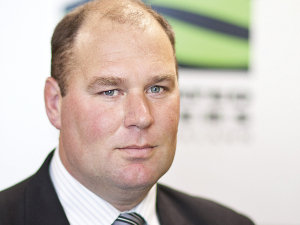Former Federated Farmers president Andrew Hoggard stepped down from the role last week and was immediately announced as an ACT Party candidate for the next general elections. In his final column for the Feds, Hoggard had this to say on emissions pricing…
It's the business end of the season when it comes to emissions pricing discussions, with the Government due to announce a final decision in the next few weeks.
This is a big moment for our sector and farmers are understandably wanting to know what Federated Farmers’ position is.
We have been clear and consistent since 2019 about what we stand for and we have three firm bottom lines that we won’t budge on.
Firstly, we won’t support emissions pricing until there has been view of the current methane reduction targets that takes the different warming impact of methane into account.
Our current methane targets are unrealistic, unscientific, and go further than is needed to stop farming’s contribution to warming.
We are never going to support a 10% 2030 target that drives a 20% reduction in sheep and beef and a 5% reduction in dairy, while plastering our countryside in pine trees and hollowing out rural communities.
Secondly, we will only support pricing for the purpose of incentivising the uptake of viable mitigation options.
Anything else is just a tax on a productive sector who don’t have options.
Because Kiwi farmers are already the world’s most emissions efficient producers of milk and meat, we are going to need new tools and technology to support further reductions.
As it currently stands, we don’t have any tools that can be adopted at scale. Frustratingly, the few options we may have, like feed inhibitors and genetically modified ryegrass, are being held up by a lack of regulatory pathways.
Finally, we won’t support emission pricing if it’s just going to lead to what is called ‘emissions leakage’.
It makes absolutely no sense to reduce our production here, only for the gap in the market to be filled by a less emission efficient producer.
That will just ruin our economy while increasing global emissions. New Zealand should be in the business of exporting food and fibre, not jobs, market share and emissions.
Farmers can have confidence that Fed’s will stick firmly to these bottom lines and won’t accept anything that doesn’t meet them.
The Government need to step back and realise that the world has continued to spin for the last few years, and we are now living in a very different environment.
Internationally we’ve got pandemic, war, supply chain turmoil, and a food security crisis. In New Zealand economic conditions have worsened with a looming recession, rampant inflation, and a huge clean-up bill for Cyclone Gabrielle. Now is not the time to pull the hand brake on our productive sector.
Farmers are in a different place now too, with voluntary initiatives outpacing regulation as we respond to market signals to capture market premiums for low sustainable emissions produce.
Individual farmers and companies are innovating at a terrific pace and as consumer preferences and market demands change, so will our farmers.


















